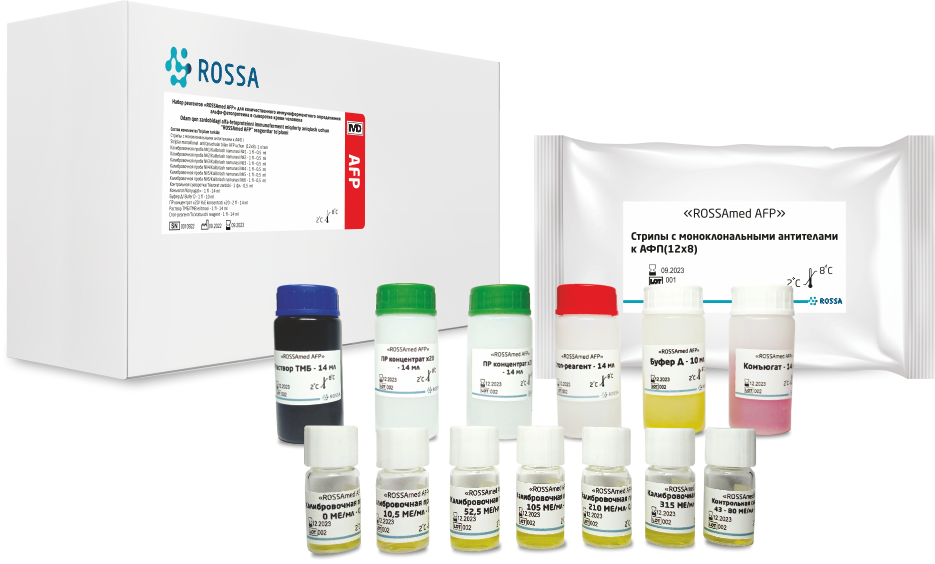ELISA kit «ROSSAmed AFP»


Reagent Description
The "ROSSAmed AFP" kit is designed for the quantitative determination of alpha-fetoprotein (AFP) in human blood.
Specifications
- Storage conditions : +2…+8°С
- Expiration date : 12 mounth
- Number of studies : 96
Detailed description
The “ROSSAmed AFP” kit is designed for the quantitative determination of alpha-fetoprotein (AFP) in human blood serum by senzyme-linked immunosorbent assay (ELISA).
AFP is a glycoprotein with a molecular weight of about 70 OOO Da. During human development, AFP is formed mainly in the yolk sac and the embryonic liver and to a lesser extent in the gastrointestinal tract. AFP reaches its maximum concentration (up to 240 OOO IU/ml) in fetal blood serum during 12-15 weeks of intrauterine development, after which its level decreases and reaches normal (0-16 IU/ml) by the end of the second year of life. Within such limits, this indicator normally persists throughout life.
AFP, being the main protein of the early fetal blood serum, is secreted by the fetal kidneys into the amniotic fluid and from there through the placenta and umbilical cord penetrates into the mother’s circulatory system. The level of AFP in the blood of pregnant women is constantly increasing and reaches a maximum (up to 400 IU /ml) by the middle of the third trimester of pregnancy.
The change in the concentration of AFP in the blood serum of pregnant women is an important indicator of the prenatal diagnosis of certain congenital diseases (open defects of the medullary tube, Down syndrome). In addition, this method is widely used in obstetrics in the diagnosis of multiple pregnancies, intrauterine fetal death and the threat of miscarriage. Determining the level of AFP can also be used in the diagnosis and monitoring of various types of cancer. For example, a high and persistent level of AFP (800-80000 IU/ml and higher) very often accompanies primary hepatoma, testicular teratomas and tumors of the endodermal sinus of the ovaries.





